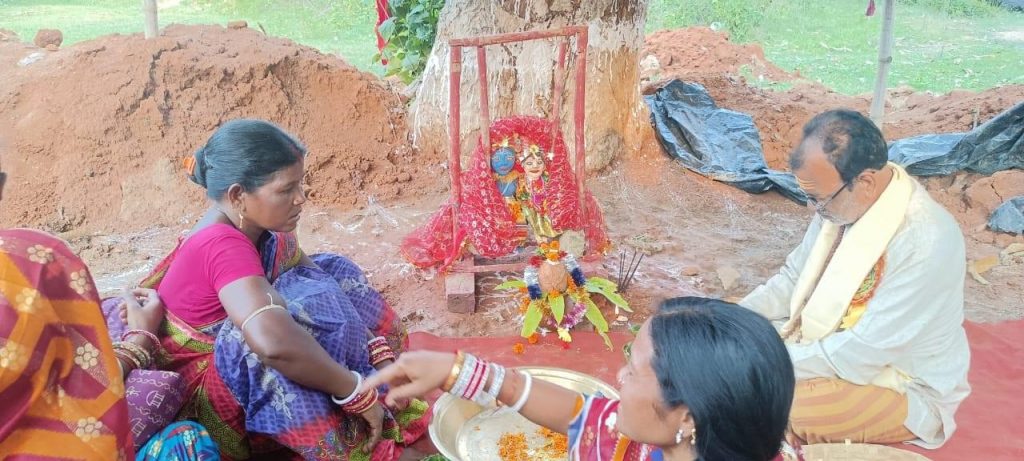Keonjhar: On the concluding day of the three-day-long Raja festival, thousands of people, mostly women, witnessed the marriage of deity ‘Rajabati’ in Harsapur, Sendkap and other villages in Keonjhar district, Sunday. Various rituals were performed before Rajabati, a village deity made of clay by the women and girls at Raja ground in these villages. The marriage ceremony of the deity was solemnised at the Doli ground in Sendkap village amid festivities.
A big procession was taken out in the village to the marriage venue which was decorated with colorful light and gates. Prasanna Kumar Mohapatra, a servitor in Sendkap village said, “This is Radha-Krishna’s marriage. Mother Radha or Mother Earth is menstruating. Therefore, for three days, young women and girls in the village do not work. They worship the idols made of clay and play on a swing for three days. That is why it is called as Rajabati Vivah which is organised during the Raja festival.” People believe if Rajabati is happy, people in the village and the area will live happily and there will be good harvest. People from far and wide come to the village and participate in Raja festival and the unique wedding ceremony. It maintains unity in the village and creates a vibrant atmosphere.
On this day, girls and young women play on swings, called Raja doli, which is also an integral part of the wedding rituals. “We are trying to maintain this tradition” said Ranjan Behera, an organiser at Sendkap village.
According to the villagers, on the first day of Raja festival, the idol of the deities – a male and a female – called Rajabati (Mother Earth) are made from clay, and a swing is also installed at the festival ground. On the second day – Raja sankranti – the idols are dressed in colorful wedding attires and brought to the marriage pandal at the festival ground in a big procession from the village. On the third day, the marriage of the two idols are organized which is followed by a grand feast. The idols are taken in a big procession before they are immersed in the water on the fourth day, which is the Basumati Snana.






